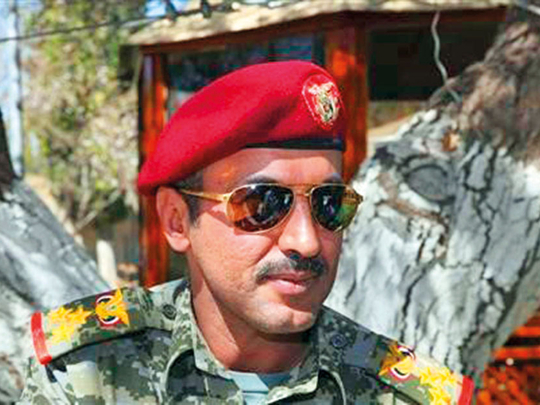
Aden: A Saudi-led coalition intensified air strikes on Yemen early on Wednesday as the armed Al Houthi movement tightened its grip on the capital after it killed former president Ali Abdullah Saleh, who switched sides in the civil war.
Saudi Arabia and its allies struck a day after Saleh’s son vowed to lead a campaign against the Iran-aligned Al Houthis.
The intervention by Ahmad Ali, a former leader of the elite Republican Guard once seen as a likely successor to his father, gives the anti-Al Houthi movement a potential figurehead after a week of fighting that saw Al Houthis rout Saleh’s supporters in the capital.
Yemen’s war, pitting Al Houthis who control Sana’a against a Saudi-led military alliance backing the internationally-recognised government based in the south, has brought what the United Nations calls the world’s worst humanitarian crisis.
Saleh had helped Al Houthis win control of much of the country’s north, including Sana’a, and his decision to switch allegiances and abandon Al Houthis in the past week was the most dramatic change on the battlefield in years.
But Al Houthis swiftly crushed the pro-Saleh uprising in the capital and killed him.
Coalition fighter jets carried out dozens of air strikes, both sides said, bombing Al Houthi positions inside Sana’a and in other northern provinces.
The proxy war between regional arch-rivals Saudi Arabia and Iran has already killed more than 10,000 people, with more than two million displaced.
Nearly a million have been hit by a cholera outbreak and famine threatens much of the country.
The United Nations says millions of people may die in one of the worst famines of modern times, caused by warring parties blocking food supplies.
The UN Secretary-General Special Envoy for Yemen, Esmail Ould Shaikh Ahmad, called on all parties to show restraint in a briefing to the Security Council.
“Increased hostilities will further threaten civilian lives and exacerbate their suffering,” he said.
US Defense Secretary Jim Mattis said on Tuesday that the killing of Saleh would, in the short term, likely worsen an already dire humanitarian situation in the country.
Mattis, speaking with reporters on a military aircraft en route to Washington after a brief trip to parts of the Middle East and South Asia, said it was too early to say what impact the killing would have on the war.
He said it could either push the conflict towards UN peace negotiations or make it an “even more vicious war.”
The commander of Iran’s Islamic Revolution Guards Corps (IRGC), Major General Mohammad Ali Jafari celebrated Saleh’s killing.
The death of Saleh, who once compared ruling Yemen to dancing on the heads of snakes, deepens the complexity of the multi-sided war.
Much is likely to depend on the future allegiances of his loyalists, who had previously helped the armed Al Houthis, who hail from the Zaidi branch of Shiite Islam that ruled a thousand-year kingdom in northern Yemen until 1962.
In a statement sent to Reuters by an aide, his son said his father was killed at “the hands of the enemies of God and the country”.
Ahmad Ali said he would “confront the enemies of the homeland and humanity, who are trying to obliterate its identity and its gains and to humiliate Yemen and Yemenis”.
The Arabian peninsula’s poorest country, Yemen is one of the most violent fronts in the proxy war between Saudi Arabia and Iran, which have also backed opposing sides in Syria, Iraq and elsewhere across the Middle East.
While most analysts say that Saleh’s slaying could give Al Houthis the upper hand in the short term, the broken alliance between Al Houthis and forces loyal to Saleh appears to be permanent which will help the Yemeni government and its
backers in the Saudi-led coalition weaken their grip on the country.
While politically Al Houthis would have absolute control going forward, they are likely to lose territories given the reduction in manpower,












